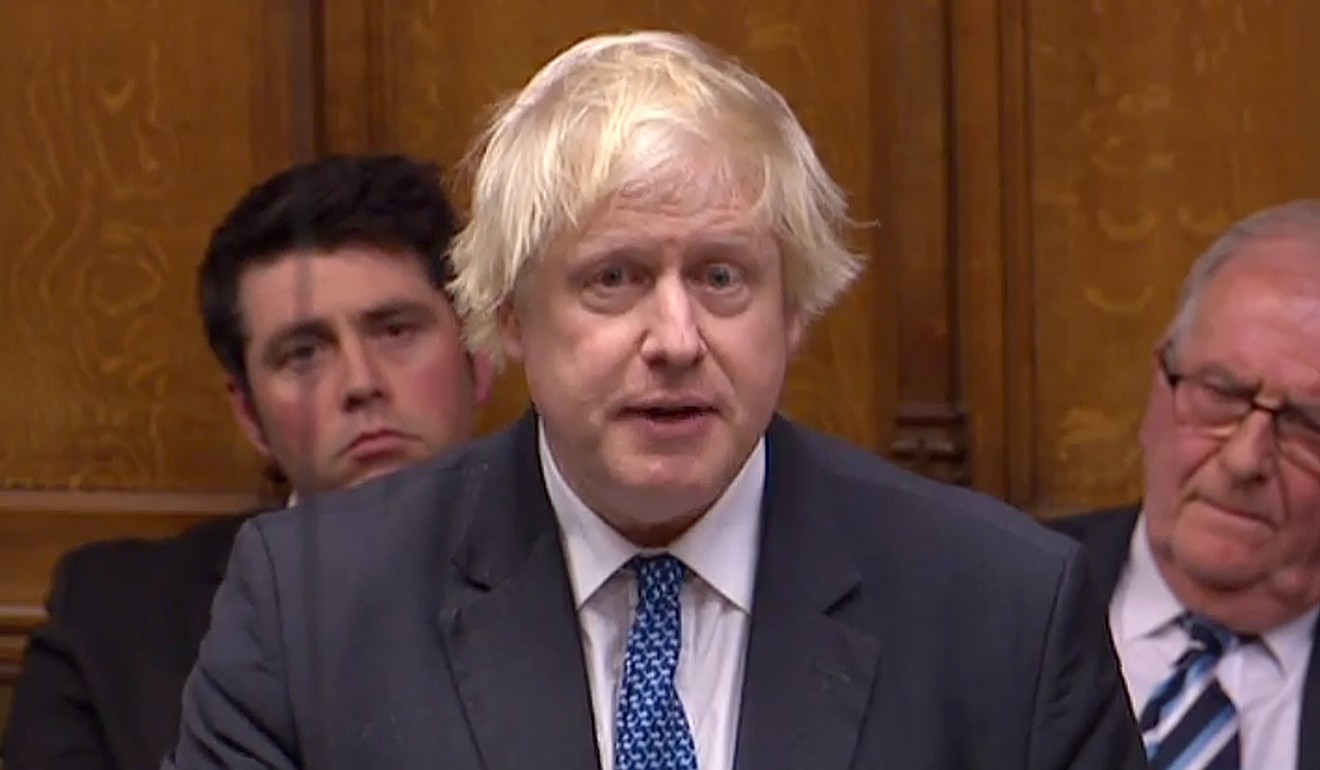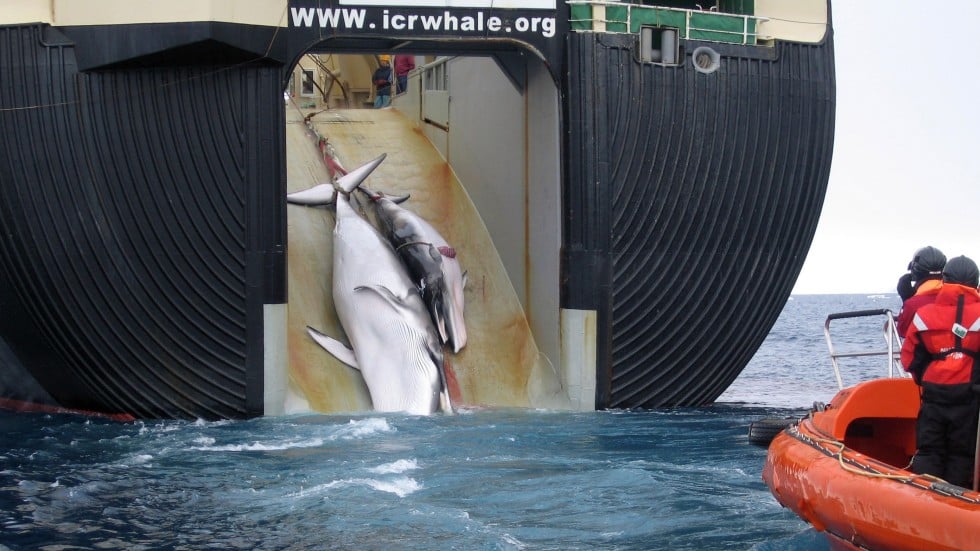- Japan announced last week it will withdraw from the International Whaling Commission in June before its whalers put to sea the following month
- Johnson criticized the British media and public for failing to be moved to anger at Japan’s plan to resume the practice
Boris Johnson, formerly the UK’s foreign secretary, has launched a scathing attack on the Japanese government’s decision to resume commercial whaling. His article, printed in the Sunday edition of The Daily Telegraph, was headlined “Why is there not more outrage about Japan’s barbaric practice of whaling?”.
Johnson criticized the British media and public for failing to be moved to anger at Japan’s plan to resume next summer “the brutal harpooning of beautiful, intelligent and endangered mammals”.
Accusing the public of responding with “apathy” to the Japanese government’s announcement last week that it will withdraw from the International Whaling Commission in June before its whalers put to sea the following month, Johnson said “every single potential justification” put forward by Japan is “nonsense”.
Numbers of whales have recovered since a moratorium on commercial whaling was imposed but many species remain endangered. Johnson also dismissed claims there is no difference between harpooning a whale on the high seas and the slaughter of farm animals for food.

“Just you try and be harpooned. You see how you like it,” wrote Johnson, still considered among the front runners to replace Prime Minister Theresa May as leader of the party should she be forced to step down. “It can take hours for whales to die – in extreme agony. To skewer such a creature, with a barbed and inaccurate lance, seems almost blasphemously cruel. Never mind the conservation arguments – unimpeachable though they seem to me. The killing of whales should be banned on animal welfare grounds alone.”
Johnson also dismissed the claim whaling is an important ancestral practice on the grounds there are plenty of other “macho cultural phenomena” that “do not involve the brutal killing of endangered species” and added Tokyo’s decision would encourage other traditional whaling nations to resume their own operations.
Johnson offered no suggestions for how Tokyo might be convinced to change its mind, although many of the commenters on the newspaper’s website proposed retaliatory actions.
“The way to stop the Japanese is to have an organised boycott of Japanese goods worldwide and point out this will cost them more than stopping whaling,” one poster wrote.
Another called on Johnson to lead the campaign, suggesting: “If you arranged a boycott of Japanese goods, this would blossom internationally within weeks, such is the power of social media.”
Another added: “Japan must suffer our sanctions. They have to choose: medieval or modern.”
Even long-term British residents of Japan struggled to comprehend the rationale behind the Japanese government’s decision.
“As a nation – and despite most of us being meat-eaters – I would say that most Brits are animal-lovers and don’t like to see cruelty being perpetrated against animals,” said Alfie Goodrich, a photographer who lives in Tokyo. “Very few people kill for sport in the UK any more and I don’t think many people would countenance the killing of endangered species. When it comes to whaling, we just don’t see the point in hunting – at great expense – any animal that is not needed for food.”
On the other hand, Mieko Nakabayashi, a former politician who is now a professor at the school of social sciences at Waseda University, said Japanese people generally feel a broad kinship and affection for Britain and the British people but “will not understand this reaction”.
“If you ask a Japanese person, eating whale is just the same as eating a cow, a pig or a sheep,” she told the South China Morning Post. “People just do not understand how there can be any difference between those animals and whales.
Even Japanese whalers are unhappy with the country’s plans to resume commercial hunts
“Japanese people love British culture, history, monarchy and everything else about the UK because they see a lot of parallels with Japan – but on this we disagree. And yes, I do think it could be damaging to the relationship, particularly if calls for a boycott catch on.”
Japan exported US$13.7 billion worth of goods to the UK in 2017, making it Japan’s 12th-largest export market. Dozens of Japanese companies also have manufacturing plants in the UK, including car companies such as Nissan and Toyota.
Tourism could also be affected if fewer British travellers decide they want to visit a nation associated with an industry widely condemned as barbaric and unnecessary.
“All the headlines about Japan resuming whaling could very well make people planning next year’s holidays think again and choose a different destination,” Goodrich said.
A mere 310,000 Brits visited Japan in 2017, a fraction of the 7.7 million Chinese tourists.











